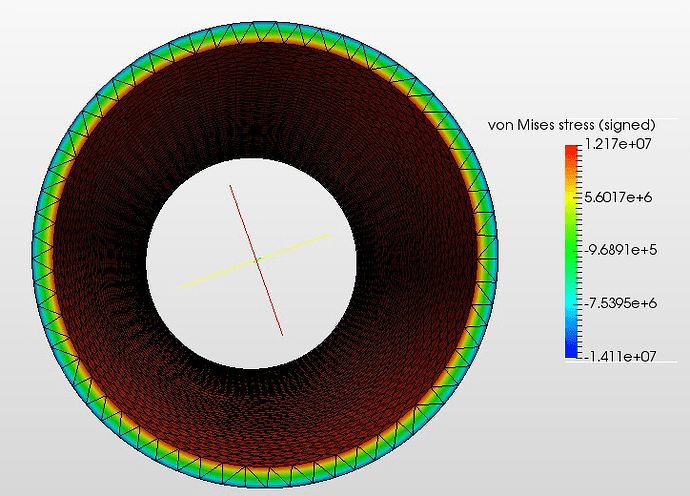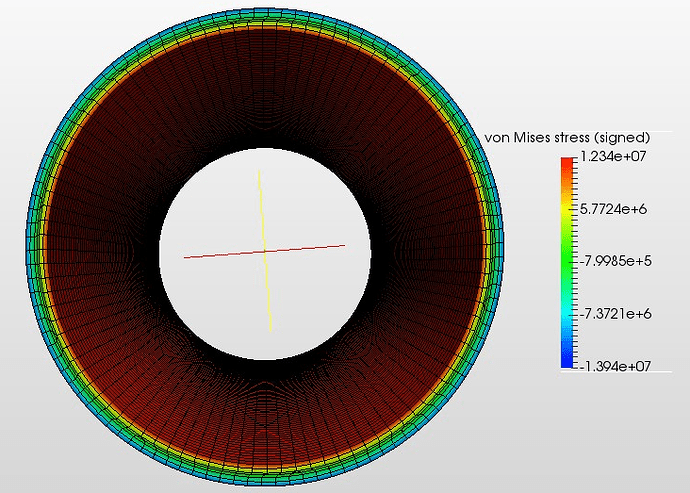To confirm the functionality of SimScale, I ran a thermostructural simulation (advanced, steady-state, static, linear) of a tube’s temperature being increased from 100C (material reference temperature of 100C) to 700C with a radial temperature gradient decreasing from the outside to the inside (from heat flow towards the inside). I got a result of the tube being entirely in tension, that is, there is no negative von mises stresses or negative strain on the outer surface. If a tube has a radial temperature gradient decreasing from the outside to the inside, the outer surface of the tube wall is in compression and the inner surface is in tension (for reference, see #16 in section 16.6 of Roark’s Formulas for Stress and Strain). Why did I get a result of the tube being entirely in tension?
Thanks,
Cedric
Hi @ceveleigh,
it’s all fine with your setup, but in your mesh you have only one linear element through the thickness, thus you can have constant stresses.
The von Mises stress is by definition positive, if you want to distinguish compression from tension you need to compute the signed von Mises stress (you can add it as a solution field in the result control section).
For an accurate result you should create a more refined mesh in the thickness direction, or use a second order mesh where 1 element would be ok for a linear stress distribution.
I copied your project and created a new simulation with a much shorter pipe and two second order meshes - a coarse one and one with layer refinements for a (potentially) more accurate stress distribution through the pipe thickness. As expected both result in the same stress distribution through the thickness and have almost the exact same range:
Coarse mesh (37K nodes) signed von Mises stress
Fine mesh (313K nodes) signed von Mises stress
You can review the setup here: Test tube by rszoeke | SimScale
For more validation projects of the thermo-mechanical solver you can have a look at the validation cases in our documentation.
Best,
Richard
3 Likes

